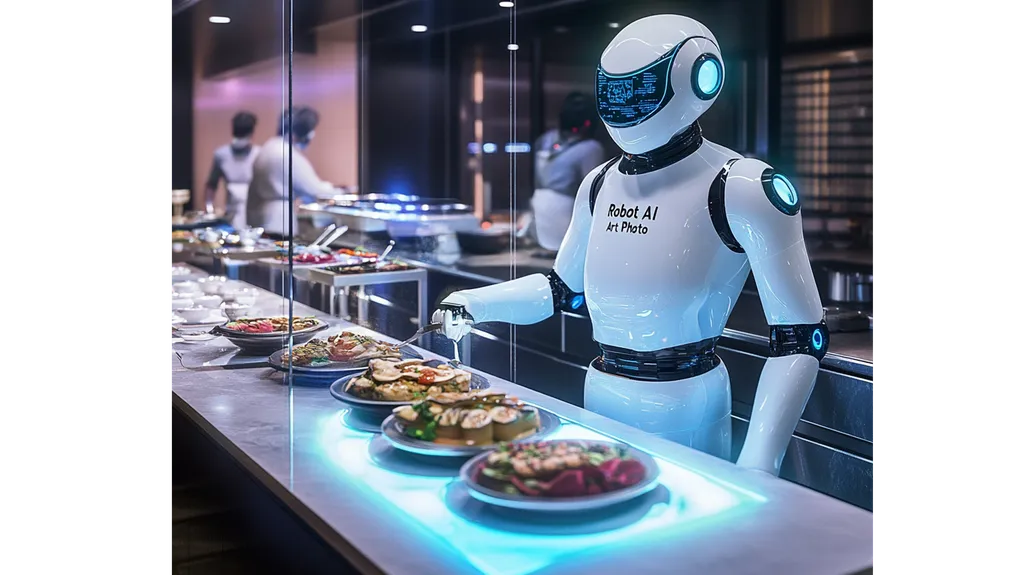In the bustling world of restaurant management, where every second counts and customer satisfaction is paramount, a new technological innovation is making waves. Researchers have developed an embedded system-based restaurant automation (ESRA) system that promises to revolutionize the way restaurants operate. This cutting-edge technology, detailed in a recent study published in the ‘International Journal of Emerging Research in Engineering, Science, and Management’ (which translates to ‘International Journal of Emerging Research in Engineering, Science, and Management’), is set to enhance operational efficiency and elevate the dining experience.
At the heart of this innovation is M. Shanmuka Satya Sudheer Naidu, a researcher from the Department of Electronics and Communication Engineering at Bonam Venkata Chalamayya Engineering College in Andhra Pradesh, India. Naidu and his team have designed the ESRA system to automate key tasks such as order management, table monitoring, inventory control, and customer service. “The goal is to streamline operations and reduce the margin for human error,” Naidu explains. “By automating these processes, restaurants can focus more on what they do best—providing exceptional service and delicious food.”
The ESRA system leverages the power of embedded systems, which are specialized computing systems designed to perform specific functions. In this case, the system uses Arduino, a popular open-source electronics platform, to integrate various components and ensure seamless operation. “Arduino provides a flexible and cost-effective solution for implementing complex automation tasks,” Naidu notes. “It’s a versatile tool that fits perfectly within the framework of our system.”
One of the standout features of the ESRA system is its ability to monitor tables in real-time. Using sensors and embedded cameras, the system can detect when a table is occupied or vacant, allowing staff to quickly attend to customers and optimize table turnover. This not only improves efficiency but also enhances the overall dining experience. “Customers appreciate prompt service, and our system ensures that their needs are met without delay,” Naidu adds.
Inventory control is another area where the ESRA system shines. By automating the tracking of stock levels, the system can alert staff when supplies are running low, preventing shortages and reducing waste. This proactive approach to inventory management can lead to significant cost savings and improved operational efficiency.
The commercial implications of this research are substantial. In an industry where margins can be tight and competition is fierce, any technology that can enhance efficiency and customer satisfaction is a game-changer. Restaurants that adopt the ESRA system can expect to see improvements in service speed, accuracy, and overall customer satisfaction. “This technology has the potential to transform the restaurant industry,” Naidu says. “It’s not just about automating tasks; it’s about creating a better experience for both customers and staff.”
As the restaurant industry continues to evolve, the ESRA system represents a significant step forward in the integration of technology and hospitality. By automating key processes, restaurants can focus on delivering exceptional service and creating memorable dining experiences. The research published in the ‘International Journal of Emerging Research in Engineering, Science, and Management’ highlights the potential of embedded systems in revolutionizing the way restaurants operate, paving the way for a more efficient and customer-centric future.
In the broader context, this research could inspire similar innovations across various sectors, from retail to healthcare. The principles of automation and real-time monitoring can be applied to numerous industries, driving efficiency and improving service delivery. As technology continues to advance, the possibilities for embedded systems are virtually limitless, and the ESRA system is just the beginning of what promises to be an exciting journey into the future of automation.

